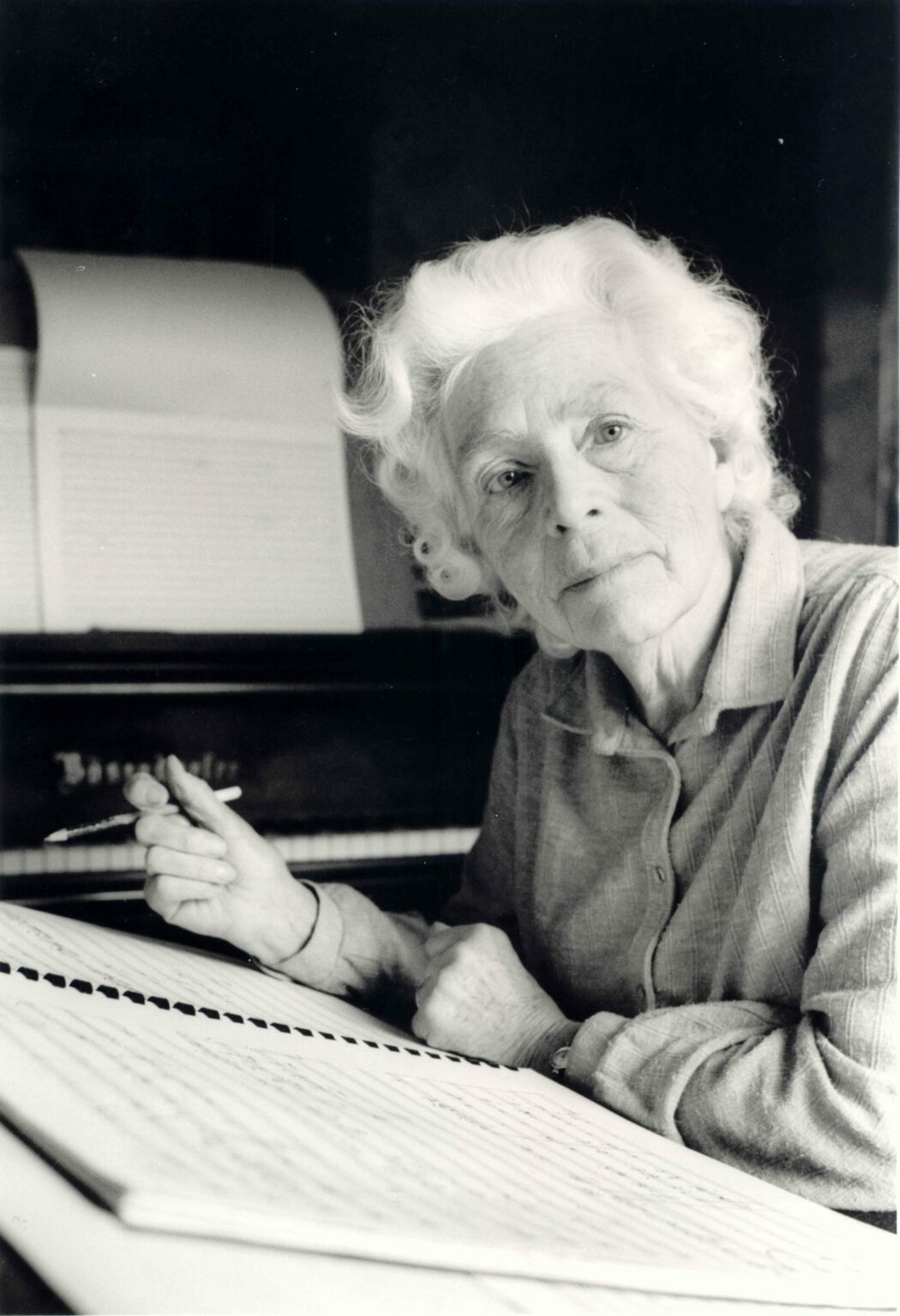Elizabeth Maconchy stands as a prominent figure in 20th-century classical music. This British composer broke barriers through her innovative compositions and unique voice. Her work spans various genres, showcasing her versatility and mastery of musical forms. Maconchy’s contributions to chamber music, vocal works, and dramatic compositions have shaped the course of modern classical music. Her string quartets, in particular, are considered some of her most significant achievements.
The Rise of a Female Composer
Elizabeth Maconchy’s journey as a female composer began at the Royal College of Music in London. She enrolled at the age of sixteen, studying under Charles Wood and Ralph Vaughan Williams. Her talent quickly became evident, earning her the Blumenthal Scholarship in 1927 and the Octavia Scholarship in 1930. These accolades allowed her to continue her studies in Prague, where she gained exposure to European composers, particularly Bartok, who influenced her early works.
Maconchy’s first public recognition came in 1930 with a performance of her Piano Concerto in Prague. Later that year, her cantata “The Land” was performed at the BBC Proms, marking a significant milestone in her career. Despite facing gender-based discrimination, such as being denied the Mendelssohn Prize for Composition, Maconchy persevered. She joined a group of women composers who organized concerts in London, showcasing new work and providing crucial opportunities for avant-garde and female composers.
Maconchy’s Contribution to Chamber Music
Elizabeth Maconchy’s chamber music, particularly her string quartets, stands as a cornerstone of her musical legacy. Over a span of more than fifty years, she composed thirteen string quartets, showcasing her evolving style and unwavering commitment to the genre. These works exemplify her conception of music as “an intellectual art, a balanced and reasoned statement of ideas, an impassioned argument, an intense but disciplined expression of emotion.”
Maconchy’s quartets demonstrate remarkable consistency in their economy of form, with most movements lasting no more than four minutes. Her style evolved from influences like Britten and Bartók to incorporate elements of Viennese expressionism. The quartets feature contrasts between intense, dour passages and lyrical sections that hint at her Irish background. As her career progressed, her works became more dissonant and less traditionally thematic, yet never lost touch with their romantic roots.
Beyond string quartets, Maconchy composed numerous other chamber and instrumental works, enriching various areas of the repertoire. Her contributions to chamber music have left an indelible mark on 20th-century classical music, awaiting rediscovery by new generations of performers and listeners.
Vocal and Dramatic Works
Elizabeth Maconchy’s talent extended beyond chamber music, encompassing a diverse range of vocal and dramatic compositions. Her work in this area showcases her versatility as a composer and her ability to set various texts to music.
Maconchy wrote three one-act operas, including the erotic comic opera “The Sofa,” which premiered in 1959 and shocked audiences with its explicitness. Her dramatic instincts also found expression in the ambitious cantata “Héloïse and Abelard” for soloists, chorus, and orchestra.
Throughout her career, Maconchy composed numerous songs and choral works. Notable pieces include “Three Settings of Poems by Gerard Manley Hopkins” (1970) and “My Dark Heart” (1981), a song cycle based on prose versions of Petrarchan sonnets by J.M. Synge. Her choral music often featured imaginative combinations of mixed chorus with chamber ensemble.
Conclusion
Elizabeth Maconchy’s contributions to classical music have had a lasting impact on the field. Her journey from a promising student at the Royal College of Music to a respected composer showcases her determination and talent. Maconchy’s work in chamber music, particularly her string quartets, stands out as a significant part of her legacy, reflecting her unique style and evolving musical philosophy.

